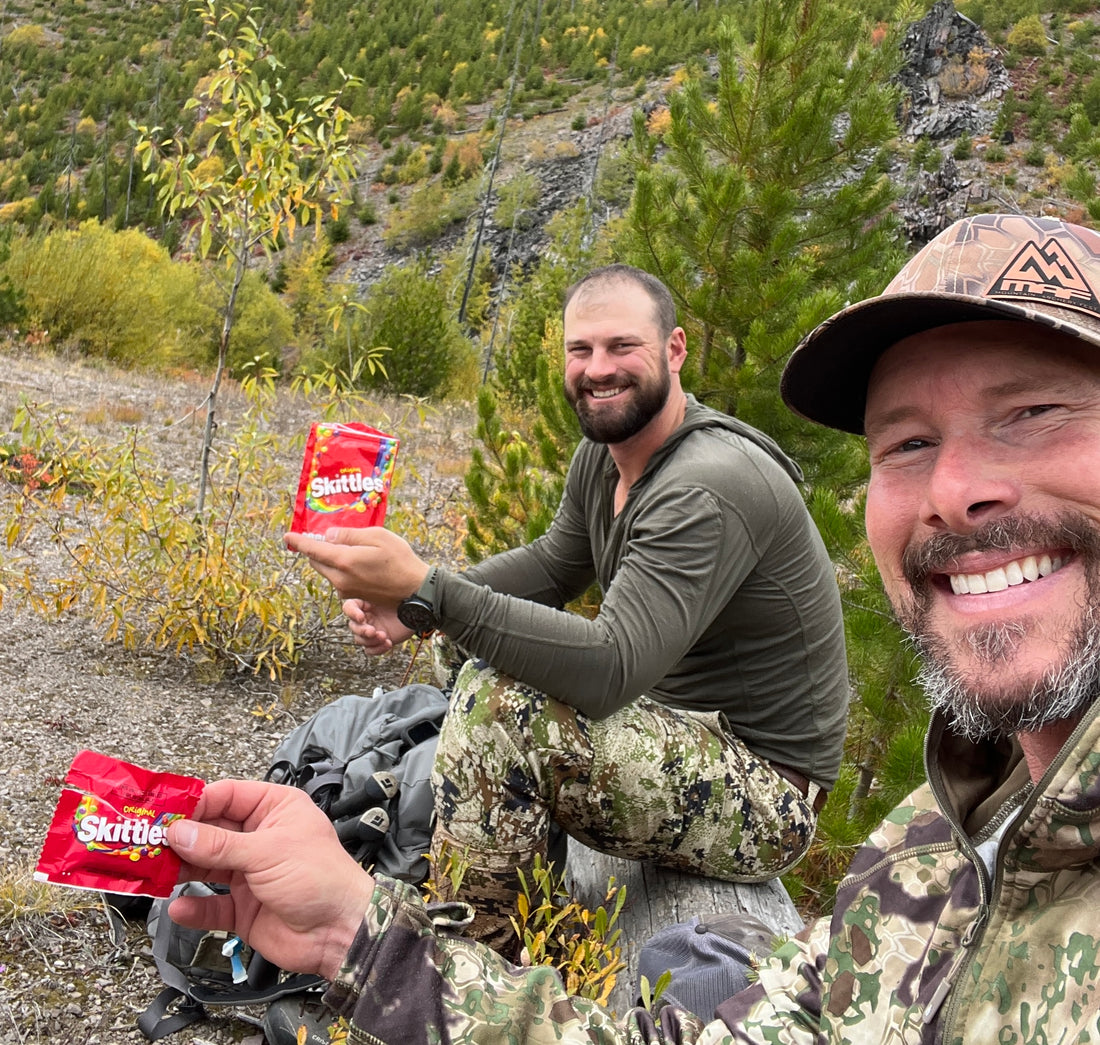
Nutrition Tips for Backcountry Hunting
Dennis StokesBackcountry backpack hunting requires a lot of physical exertion and endurance, which means that proper nutrition is critical to fuel your body for the task at hand. Hunting for days on end takes its toll if you don’t eat and drink properly. Here are some nutrition tips to help you prepare for your next backcountry backpack hunting trip.

Plan Your Meals
Planning your meals ahead of time can help ensure that you have enough food to sustain you throughout your trip. Make sure to pack foods that are high in protein, complex carbohydrates, and healthy fats, such as nuts, seeds, dried fruit, jerky, and dehydrated meals. I plan each day and separate them into gallon freezer bags so it’s easy to monitor how much I’m eating each day and how much I’ve consumed at each time in the day. Each bag should weigh 1.5-2 lb making sure to eat foods that are at least 100 calories/ounce. Some days, I won’t eat all my food so I continue to transfer into the next day’s bag. I always pack an extra day of food when preparing for a hunt. I’ll sacrifice an extra 2 lb to make sure I have enough. I’ve been on the other side of it and ran out, and I can tell you, I will not do that again. It’s plain dangerous, especially on big packouts. When muscles start cramping up and failing due to lack of nourishment, you can get in a bind very fast.
Prioritize Protein
Protein is essential for muscle recovery and growth, and it can also help keep you feeling full and satisfied.

Protein plays a vital role in building and repairing muscles, which can be especially important when you're carrying a heavy pack and hiking up steep inclines. Pack protein-rich foods such as beef jerky, trail mix with nuts and seeds, and protein bars. Cheese is one of my favorite sources of protein, and I usually carry 2-3 servings for each day. You can even bring along protein supplements such as Level-1 from 1st Phorm. It's important to aim for a balanced diet that includes a variety of protein sources to ensure you're getting all the essential amino acids your body needs.
Hydration
Water is THE MOST IMPORTANT nutrient we can put into our bodies. Dehydration can affect your performance and lead to fatigue, cramps, and headaches.

Make sure to bring plenty of water and/or have a method of filtering/purifying water along with supplemental electrolyte-replacement powders to stay hydrated. Aim to drink at least 2-3 liters of water per day and more if you're sweating heavily. I prefer Liquid IV electrolyte supplements to aid with hydration and electrolyte replenishment. The single-serve packets are light and very soluble. It tastes great too helping to limit the monotony of the taste of water.
Pack Nutrient-Dense Foods
Backcountry hunting often requires carrying heavy loads, which means that you'll want to pack nutrient-dense foods that are high in calories and easy to carry. Pack lightweight and calorie-dense foods such as nuts, seeds, dried fruits, and energy bars. That is where the goal of 100 cal/oz comes in. Fat is a great source of energy that has over twice the energy in 1 ounce as an ounce of a carbohydrate. Obviously, we shouldn’t attempt to get all of our needed energy from fat but a good mix of fat with complex carbs is a good way to go.
Avoid Processed Foods
Processed foods, such as chips, candy bars, and other junk, are high in sugar and unhealthy fats and won't provide the sustained energy you need for long days on the mountain. Opt for whole foods instead, such as complex grains, dehydrated/freeze-dried fruit, vegetables, and lean protein.
However, I try to put one source of “junk” in each food bag a day as it tends to mix up the monotony and gives me the simple pleasure of something that just tastes good. Honestly, it helps morale and overall mental health. My favorite snack is a small bag of Fruit Loops or Fruity Pebbles.

Eat Foods You Normally Eat at Home
It’s important to not completely change the menu of the foods that you normally eat at home every day when you go on a multiday hunt. Don’t all of a sudden try to start eating healthy and expect your digestive system to just go with the flow. Too many hunters have tried to do that and have paid for it. Trust me, you will regret it, and you don’t want to spend your precious hunting time off in the brush “taking care of business”.
This is a great reason for the growing popularity of dehydrating and freeze-drying your own meals. You cook meals that you normally eat at home, dehydrate or freeze-dry them, and portion them into single servings in vacuum bags to take with you on the hunt. It takes a lot of work but can be done fairly easily and will save a ton of money over time.
In conclusion, proper nutrition is critical for a successful backcountry hunting trip. By planning your meals, prioritizing protein, staying hydrated, packing nutrient-dense foods, avoiding processed foods, and considering supplements, you can fuel your body for the physical demands of backpack hunting. Let me know if you have any questions or comment. I’m always looking for better, more efficient ways to fuel my body on hunts.
For a video of a detailed example of my One Day Food Bag, click here.
